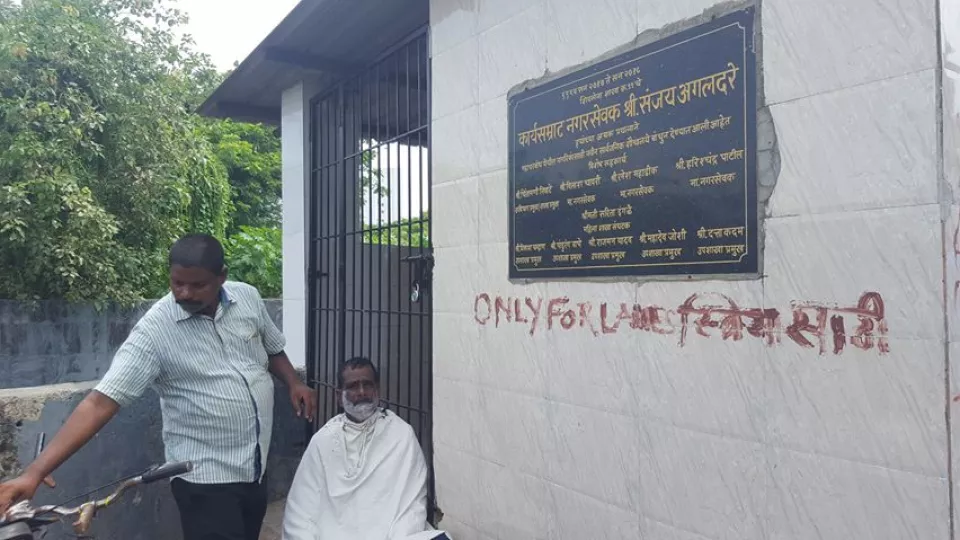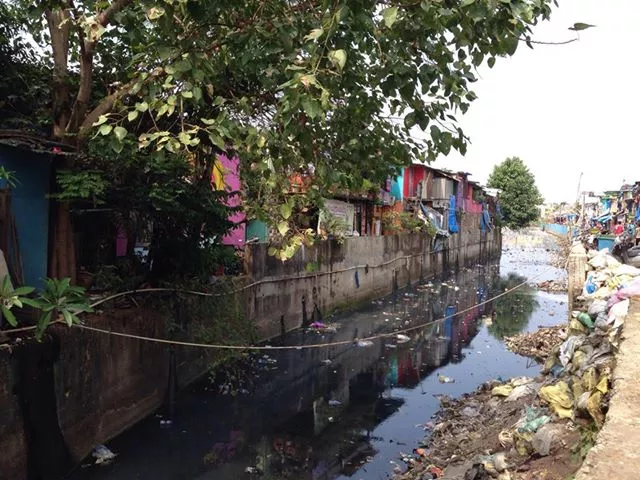Her research focus is on sanitation, health and sustainability. She is currently in India, where LUCSUS is giving a course to architectural students in Mumbai as part of a project on capacity-building. As part of the course, she and her colleagues, visited an informal settlement located at the city’s coastline.
She explains that there are three main factors that contribute to poor sanitation in urban informal settlements. These are: inadequate access to water, few clean and functioning public toilets, and no soap to wash away bacteria and dirt. Viruses and parasites in human waste contaminates water resources, soil and food. This contamination is a major cause of diarrhoea, the second biggest killer of children in developing countries, and leads to other major diseases such as cholera, schistosomiasis, and trachoma.
The megacity Mumbai is home to about 23 million people. It is the largest city in India, and one of the most populated cities in the world. 58 percent of the population live in informal settlements, which today make up about 8 percent of the city’s land area. A majority of this population rely on shared toilets for their sanitary needs and it is estimated that between two to four million people still practice open defecation inside the city because of lack of toilets. In 2025, the population in the city is projected to increase to 27 million and most people will settle in these informal settlements, putting even more pressure on the already scarce land and water in the city.
– So many people live on the same land in these settlements, and you are surrounded by bacteria the whole time. There is also stagnant water where bacteria can grow, and lack of water makes it hard to maintain hygiene. And even if there are public toilets they are often dirty and not managed properly, says Sara Gabrielsson.
Sanitation more than toilets
According to her there needs to be an urban sanitation value chain in place in a community to improve sanitation. That includes processes to handle toilet waste: where latrines or septic tanks need to be emptied and transported away from local settlements for treatment, and toilets need to regularly cleaned and maintained. Also crucial is creating local demand for sanitation through building a sense of community ownership for the management of the toilets.
– The only toilets available in the settlement we visited in Mumbai were public toilet blocks with a septic tanks, but they were operated on a voluntary basis. That means that responsibility for cleaning and ensuring water and soap for flushing and handwashing is left to the individual and this help to explain why the majority of the toilets we visited were extremely dirty and lacked resources for maintaining personal hygiene, even though they had all been constructed as recently as last year. Many toilets were also locked, so you don’t know if they are open for people to use.
She says that the locked toilets are symptomatic of some of the problems facing informal settlements, both in India and worldwide. Many communities get toilets installed for other reasons than to improve sanitation. It could be to get higher status, or, as was the case in the informal settlement in Mumbai, that local politicians install toilets to get political support from people living in the settlement.
– Sanitation is not only toilets. It is about education, awareness and changing behaviors. In many countries, including in India and countries in Africa, there is too much faith in the hardware to improve health and hygiene. Focus must also be on the software, changing how people think, behave and value sanitation and that can only come from mobilizing people, especially women, to take part in the community engagement process.
For that to happen, the authorities in India need to acknowledge the multiple benefits of improved sanitation for all, says Sara Gabrielsson. This includes situating sanitation into wider governance systems where improving access to sanitation also involves raising awareness about the interlinkages between toilets, water, access to handwashing facilities and solid waste management to improve health outcomes and livelihoods.
Above all, there needs to be an understanding of how sanitation is linked to health, safety, equality and gender, since many women experience abuse and harassment when they have to go to the toilet outside.
– There are also other ways to do things. For example in Kibera, Kenya, communities in informal settlements have built a social infrastructure around the public toilets, there is running water, washing machines, cooking facilities and phone charging stations. The toilets become a priority in the community since the community both own and manage them.
She says that the visit reminded her of how urgent it is to change the situation for the urban poor.
– There is a real need for improved sanitation, not just in India, but worldwide. Especially because climate change will make the problem way worse, she concludes.



